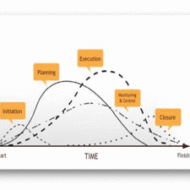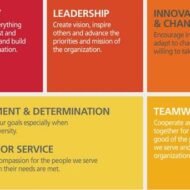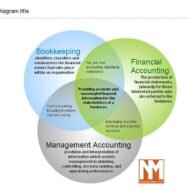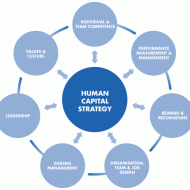Posted by Managementguru in Business Management, Decision Making, Marketing, Operations Management, Project Management
on May 7th, 2014 | 0 comments

Project Formulation and Project Life Cycle What is a Project? “A temporary endevour leading to a product / service or result ” A project is any series of activities and tasks that: • Have a specific objective to be completed within certain specifications • Have defined start and end dates; • Have funding limits (if applicable); and • Consume resources (i.e. money, time, equipment). Characteristic Features of a Project: • Has a mission or a set of objectives. Once the mission is achieved the project is treated as completed. • Has to terminate at some time or the other (temporary in nature) • The project is one single entity and its responsibility is assigned to one single agency. • Calls for team-work, the members of the team may come from different organizational units, different disciplines, and geographic regions. • Has a life cycle represented by growth, maturity and decay. • Is unique and no two projects are similar, even though the plants set up are identical. The organizations, the infrastructure, the location and the people make the project unique. • Change is a natural phenomenon with every project throughout its life span. Some changes may not have any major impact, but some may change the very nature of the project. • The happenings during the life cycle of a project are not fully known at any stage. As time passes, the details are finalized successively. • Is always customer-specific. The requirements and constraints within which a project must be executed are stipulated by the customer. • Is a complex set of things. Projects vary in terms of technology, equipment and materials, machinery and people, work ethics and organizational culture. • A substantial portion of the work in a project is done by sub-contracting. The greater the complexity of a project, the greater will be the extent of work performed by subcontractors. • Is exposed to risk and uncertainty and the extent of these depend upon how the project moves through the various stages in its life span. • A well defined project has lesser risk and uncertainty, whereas an ill-defined project faces greater degree of risk and uncertainty. Project Life Cycle: The Project Life Cycle refers to a series of activities which are necessary to fulfill project goals or objectives. The different phases are as follows: a) Concept or initialization phase In this phase, the project idea emerges and the #management decides on the need for a project. A project which is well conceived can be later implemented successfully. b) Project Definition Phase •The techno-economic viability of the project is checked •The technical configuration of the project is identified •The performance requirements, sub-systems, key equipments etc.- purchased •The cost estimates with limits are identified •Schedule of implementation is identified c) Growth or Organisation Phase Organizations, during this phase, undertake the following actions: a) Establishing the infrastructure and enabling services for the project b) Project engineering and design c) Setting up Project Organization and staffing d) Appointing a project manager e) Preparing schedules and budgets f) Obtaining necessary licenses and clearances from the Government g) Raising finance h) Developing systems and procedures for monitoring and reviewing project progress i) Procedures for inviting tenders and awarding contracts j) Site preparation and development k) Procuring equipment and materials l) Work packaging This phase covers both paper work connected with project planning and also implementation activities. Planning is necessary to avoid crisis management; it makes the implementation phase to run smoothly. d) Implementation Phase The activities include: 1) The preparation of specifications for major equipment and machineries, 2) Placing orders with vendors for the supply of...

Posted by Managementguru in Business Management, Entrepreneurship, Human Resource, Organisational behaviour, Principles of Management, Training & Development
on Mar 30th, 2014 | 0 comments

Values and Beliefs in Organizations What are Values and Beliefs in an Organization: An organisational value is “a belief that a specific mode of conduct is preferable to an opposite or contrary mode of conduct.” Infosys Narayanamoorthy on Value System : Our team was unique in our commitment to a strong value system. We believed in putting the interest of the company ahead of our own interest. We believed in legal and ethical business. A sound value system is what differentiates long-term players from others. Core Values of an Organization: Increasingly, organizations are setting out the core values that they think should govern the behavior of all their employees. Value statements may be produced which define core values in areas such as: Care for customers Concern for people Competitiveness Enterprising Excellence Flexibility Growth as a major objective Innovation Market/customer orientation Productivity Quality Teamwork But, is that all? By just defining what you think is important to guide the action of your employees may not suffice the cause. How do you put them into action! That’s where the secret lies. Imitating the Boss: How do you make people do what you want them to do! Just by being a precedence or role model for your followers, is that not true? The best example that can be cited is the school atmosphere, where the kids take to their teachers. They simply, blindly follow or imitate whatever their masters do. I think IMITATION is the right word, because it makes people easily inclined to the behavior that is appreciated by the organisation’s atmosphere. When you imitate your boss you get a surreal feeling of being a boss at least for that time being. Coercion is not the Right Approach: It is a general fact that it is very difficult to train or mould people the way we want to. And again it can be argued that people can be trained or molded very easily when you have the right kind of motivation and guidance. The core values should be INBUILT; it should be there RIGHT FROM THE START. If you have able managers to run your teams it becomes a cake walk for you to train the individuals without much COERCION. The authority and influence which the team leader has over the team says it all. Influencing the Employees the Right Way: Everybody in an organization plays their own role in cherishing the values imbibed and focus on achieving results, and keenness to “GET GOING AND KEEP GOING”. High work output is expected from a clerical staff, the Supervisor can be depended on for effective organization and control of teams and their work. THE MANAGER is clear about what “success “means for the business and is resourceful in overcoming obstacles. THE SENIOR MANAGER maintains focus on the “BOTTOM LINE” despite continuous changes to procedures and systems, and the EXECUTIVE is focused on results even when dealing with very diverse complex tasks and proactive in tackling mistakes. Performance of Value Oriented Organizations: Value Oriented Organisations perform definitely better than others and achieve their targets in a quick manner. Values give direction to the firm backed up by solid principles to guide the action of the employees and also the commitment and determination to achieve whatever is due. Reliance Industries Limited stands as a testimony for a single man’s dream and vision and his core value was CUSTOMER SATISFACTION. To scale to greater heights, you also need STRONG WILLED PEOPLE RIGHT ATTITUDE ACTION PLANS STRATEGIES PERSISTENCE DETERMINATION and PASSION Values add integrity and honor to your organization and you should always remember that to hold your values you...

Posted by Managementguru in Financial Accounting, Management Accounting, Principles of Management
on Mar 27th, 2014 | 0 comments

Management Vs. Financial Accounting Management Accounting : The process of preparing management reports and accounts that provides accurate and timely financial and statistical information to the management Financial Accounting : The purpose of accounting is to provide the information that is needed for sound economic decision making concerned with classifying, measuring and recording the transactions of a business. What is Management Accounting: Management accounting is the updated version of what you call financial accounting and the most circulated term in corporate business arena. Management involves planning, organizing, staffing, leading and controlling the resources available in an organization, namely the physical and human resources. Much importance is given to personnel management as they are the priceless assets of any organisation.But it is equally important for a firm to record all its business transactions for future reference and tax audits. Thus the necessity of accounting comes into the fray. Financial Statements Made Easy Functional Difference: Well, accounting means something to do with finance. So, what is the big difference, if it is financial or management accounting? One difference is in the title, and the other in their function. The rationale behind financial accounting is statutory, done for the benefit of shareholders, customers, government regulatory agencies, other external agencies, potential investors and the like. It records all business transactions that are purely monetary in nature and no further analysis is done. Essential for Management Planning: Management accounting is voluntary and reports are prepared to meet the internal needs of management. We talked about planning, for which interpretation and analysis of such quantitative data and other inputs becomes necessary to plan for future needs of management. The main functions being attention direction and problem solving, management accounting is primarily concerned with providing information relating to the various aspects of a business, like cost or profit associated with some portions of business operations. It employs techniques such as standard costing, budgeting, marginal costing, break- even analysis and so on., Inputs also stem from industry data, competitor data, published reports by public and private agencies and research studies findings, thus widening its scope for improvement in business operations. Financial Accounting: Financial accounting is restricted to deal only with “generally accepted accounting principles” and any deviation is considered to be errors for correction. Though it provides valid and authentic information, it lacks timeliness. The former restricts the accountant to a mere book-keeper while the latter transcends the role of the accountant to that of total business information technologist. Here he becomes an evaluator of different functional areas like marketing, production, purchase and personnel. As modern business is huge in size, complex, diversified and decentralized in terms of operations, financial accounting just does not fill the bill, as information is required as when an event happens at various hierarchical levels of an organisation. This infographic from Goodaccountants.com details the industries that employ the most accountants and auditors, and the results are very interesting! Management accounting is inter disciplinary in character and derives inspiration from organizational theory, economics, behavioral sciences, statistics and management. Although the paraphernalia required for management reporting is complex and expensive, it is worth the try, as it tries to compare and contrast the actuals with the standards and bring out variances if any. This is quite useful in determining the cost-effectiveness of a particular project or to be prepared for suitable action. Management accounting is nothing but a management information system where the managers have to be techno-savvy in order to handle the total information resource and project it suitably to the management to take timely actions for the increase in growth, profit and sustainability of the...

Posted by Managementguru in Business Management, Human Resource, Labor Management, Organisational behaviour, Principles of Management, Training & Development
on Mar 20th, 2014 | 0 comments

Human Capital is the skill sets, knowledge and experience of human resource put to effective use to increase productivity. The term capital indicates the resource value of humans in which organizations invest their time, energy and money. The much pondered subject in recent times in big corporate organizations is about managing human capital.

Posted by Managementguru in Decision Making, Entrepreneurship, Human Resource, Organisational behaviour, Principles of Management, Training & Development
on Mar 20th, 2014 | 0 comments

Self Motivation-Key to Managerial Success What is Self Motivation : Ability to do what needs to be done without external influence. How does your company become successful? Just because you have cutting edge technology! Surplus capital! Excellent Infrastructure! Reliable Workforce! Definitely not. A COMPETENT VALUE-DRIVEN CORPORATE MANAGER would make all the difference. Even his very presence would make the atmosphere ELECTRIC. Only some are gifted or bestowed with top managerial qualities. How! Is it an innate quality or imbibed! It is a topic worth the discussion, because it proves to be the liveliest element in the management process. Well, when top management decides to recruit a good manger, what are the qualities they would be in favor of? Think about it, we even expect a house maid to be sincere, on time and loyal to us. When it comes to corporate dealings, the first and foremost quality desired will be “BEARING HUGE RESPONSIBILITY“. Accountability, transparency and control towards the day to day affairs of the company follow suit. Read this resourceful article from Inlpcenter – Change Your Thinking: The Alternate Futures Self-Motivation Exercise , a unique self motivating strategy to make believe in yourself and become better problem solvers. These managers who are also leaders serve as a ROLE MODEL for all the other employees SET STANDARDS FOR PERFORMANCE Motivate their employees Set a Brand Image for the company Be a GOOD LIAISON Problem solver Counselor and make the company special. Strategic Direction: When we talk about value, we talk about the influence that the value has on the STRATEGIC DIRECTION OF THE FIRM, which involves shaping up the character and image of the firm. A good manager EVOLVES OVER A PERIOD OF TIME. While considering the HEAVY TURN OVER TREND that has set in lately in the corporate environment, it becomes important for the top management to pick their HR lot carefully. How do you empower your trusted persons is a question that every Boss has to ask himself to retain the best talent. Good Managers stick to the firm and they contribute to the GROWTH OF THE FIRM. Training plays, of course a major part in the DEVELOPMENT OF MANAGERS but I feel that ONLY THE PERSON WHO MAKES THE BEST USE OF HIS SUBCONSCIOUS INNER DRIVE, REACHES THE TOP. Loyalty is an outdated term in this modern world and the minimum you could expect is SINCERITY. Self motivated managers easily regulate the environment and makes the climate cordial. He has to don many roles, A BRIDGE BETWEEN TOP MANAGEMENT AND EMPLOYEES MANAGE THE INTEREST(OF BOTH THE FINANCIAL INSTITUTIONS AND EMPLOYEES) FORMULATING MARKET STRATEGIES SHOULD BE A TECH-SAVVY A MAN OF EMPATHY A MAN OF BRILLIANT INTUITIONS(ESPECIALLY WHEN IT CONCERNS STOCK MARKET) EVER LEARNING VERSATILE and much more. Practice makes a man perfect is the saying. It suits the corporate business world too, provided the man is intelligent, capable and smart in taking decisions. Always a thinking person, an efficient manager would be on the look out for opportunities and resources that could benefit the firm. Every one of you who aspires to catch up with top positions in the business world must do a “THOROUGH SELF ANALYSIS” as to how agreeable you are in the likert scale of the...










